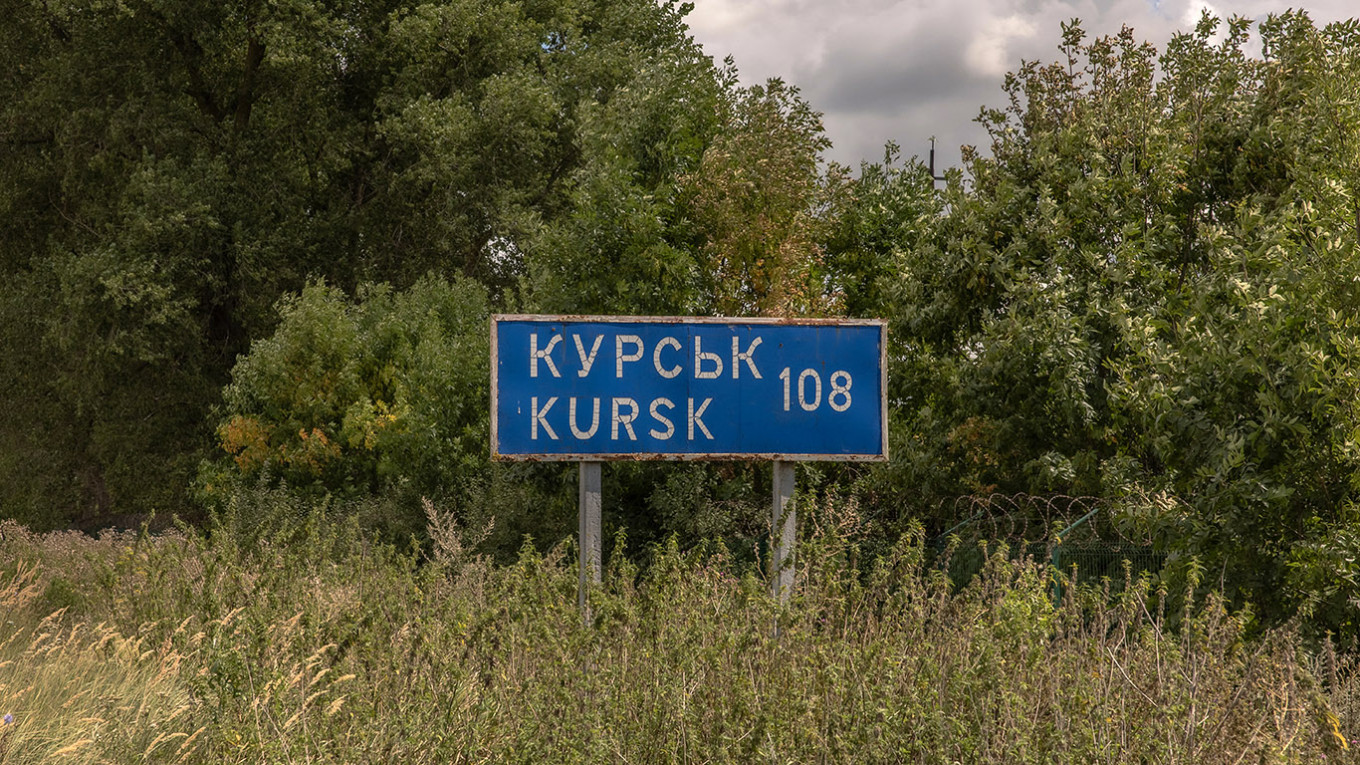From the very beginning of Ukraine’s incursion into Russia’s Kursk region on Aug. 6, analysts and Russia watchers have been overly cynical about the operation’s potential success. Yet roughly two weeks into the Ukrainian Armed Forces’ attack on Russia proper, the time has come to appreciate that Ukraine has achieved several strategic and tactical victories.
Over the last two months, Ukraine has faced an extremely difficult situation along the frontlines in both Donbas and the Kharkiv region. Russia has pushed forward at notable speed, entering the city of Chasiv Yar, making large gains on the Pokrovsk axis, and holding the line in Vovchansk north-east of Kharkiv. Ukraine’s Armed Forces have been bogged down in a war of attrition with little to no successes stemming from their efforts. These setbacks have been reflected in the depressed morale of Ukraine’s soldiers and Ukrainian society – for many, this war of attrition has dragged on far too long.
Ukraine’s surprise attack on Russia’s Kursk region has succeeded in turning the tables on Moscow, presenting Putin with a dilemma and showing both the world and Ukrainians that Ukraine is still in this fight.
First and foremost, the Ukrainian Armed Forces’ surprise incursion and unexpected successes have once again demonstrated the fluidity — even the illusion — of Russia’s “red lines.” In the two weeks since Ukrainian soldiers entered the Kursk region, there has been no proportionate or disproportion response from the Kremlin beyond its typical strategy of bombing Ukrainian cities and civilian infrastructure, such as a supermarket in Kostyantynivka that killed 14 and injured 30 more. Attacks on Ukraine are business as usual for Russia, not a response to Kyiv’s successes.
Since February 2022, Kyiv’s Western partners have been infuriatingly slow and hesitant to supply Ukraine with the weapons that it needs to defend itself win this war against an unprovoked invader. Worries over overstepping Russia’s self-proclaimed red lines and triggering an escalation have permeated European capitals and Washington, ultimately resulting in slower-than-needed support for Ukraine’s defense. Again and again, however, Ukraine has crossed Moscow’s red lines, with the result repeatedly falling far short of Russia’s threat.
Attacking and temporarily occupying parts of Russia’s Kursk region proves to the West that Russia will not, and is likely incapable, of escalating the war further. Nuclear saber-rattling was only effective for so long, while Russian intelligence has already been supporting undercover sabotage actions in European capitals for months. The lack of response beyond directing more soldiers to affected areas shows that escalation is an unfounded fear among Western leaders.
Secondly, Ukraine has already achieved several strategic and tactical successes throughout its incursion into Kursk. Tactically, the Ukrainian Armed Forces have managed to inflict heavy losses on Russian military personnel, military equipment, logistical and supply lines, and damage a number of Russian airfields. Concurrently, Ukraine has captured upwards of 1,000 Russian soldiers (with some estimates suggesting over 2,000), which it can exchange for its own citizens.
Ukrainian forces have also captured dozens of Russian tanks and fighting vehicles, as well as gained access to Russian military bases that contain weapons and military intelligence. While purging local troops of their hardware advantage, Ukraine has bolstered its stocks of deeply needed weaponry, all the while taking notably fewer casualties than their Russian counterparts.
Strategically, Ukraine has managed to occupy roughly 1,000 square kilometers of Russian territory. This is more than Russia managed to take from Ukraine in the last year of fighting, according to some. Should Ukraine succeed in holding on to this territory, or even take more, this could serve as an effective bargaining chip. Though it is highly unlikely that the Kremlin will submit to negotiations in the near future — preferring brute force to achieve its aims — the occupation of Kursk will pile pressure on the Kremlin.
Since Ukraine’s successful counteroffensives in 2022, Russia has struggled with replenishing its stocks of soldiers to commit to its invasion of Ukraine. Since the controversial 2022 mobilization efforts, Russia has attracted roughly 30,000 new soldiers to its army each month, which is approximately at the replacement level it needs to keep its military at its current strength. With the Russian military now having to defend hundreds of more kilometers of the front line in Russia proper, the effects of Russia’s manpower shortage are growing evermore apparent. Russia has been forced to withdraw soldiers from its offensives in both the Donbas and Kharkiv regions, which could hinder their advances into Ukrainian territory.
Should the issue persist, Russia may also be forced into another unpopular wave of mobilization, which Russians will likely greatly oppose. Russia has also sent young conscripts — students and boys fresh out of school — to the Kursk region, causing much tension among the Russian public. Though Ukraine also faces systemic manpower issues, forcing Russia to relocate troops may just allow Ukraine to push the Russians back at weaker points along the front line.
Finally, albeit far less tangible than liberating territory, Ukraine’s incursion into Kursk has been a deeply needed morale boost for Ukrainian troops and society. For the first time in months, Ukrainians are again talking about the possibility of victory. Ukrainian soldiers, whose motivation had been at an all-time low, are now encouraged, even excited to fight. Though this is unlikely to have a major effect, some Ukrainians who had been considering volunteering but were hesitant about fighting a losing battle may see these novel events as an improvement in their chances to survive — and triumph.
The effects of taking the initiative in a war, both on the military and the general population, should not be underestimated. Ukraine has proved itself time and time again since the full-scale invasion, as society and the military worked in sync for a common goal. Any victory, such as forcing the Kremlin into a corner — or at least a very awkward position — has the potential to drive out that fighting spirit in Ukraine once again.
For many, it remains unclear what Ukraine’s strategic goals are and whether it plans to occupy the Kursk region semi-permanently (until negotiations commence) or if the military command has another trick up its sleeve. Regardless of its future plans, Ukraine has achieved a small, long-needed victory in its underdog campaign.
It is important to remain cautious and not fall into the trap of believing that one well-planned military operation will lead Ukraine to victory. There is still a real possibility that Russia will defend the Kursk region successfully and cost Ukraine many men and materiel in the process.
However, much like in the biblical story, David did not beat Goliath by overpowering him. Rather, it will be strategy, careful preparation and well-executed plans, and the element of surprise that will help Ukraine to end this war on fairer terms. In that sense, Ukraine’s incursion into Kursk is already a small victory.
A Message from The Moscow Times:
Dear readers,
We are facing unprecedented challenges. Russia's Prosecutor General's Office has designated The Moscow Times as an "undesirable" organization, criminalizing our work and putting our staff at risk of prosecution. This follows our earlier unjust labeling as a "foreign agent."
These actions are direct attempts to silence independent journalism in Russia. The authorities claim our work "discredits the decisions of the Russian leadership." We see things differently: we strive to provide accurate, unbiased reporting on Russia.
We, the journalists of The Moscow Times, refuse to be silenced. But to continue our work, we need your help.
Your support, no matter how small, makes a world of difference. If you can, please support us monthly starting from just $2. It's quick to set up, and every contribution makes a significant impact.
By supporting The Moscow Times, you're defending open, independent journalism in the face of repression. Thank you for standing with us.
Remind me later.








